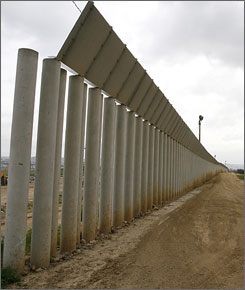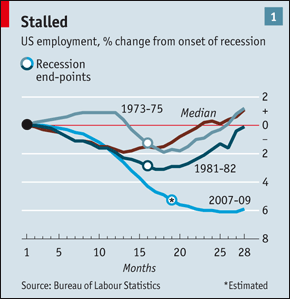 Bloomberg BusinessWeek story says our immigration system isn't broken nearly as much as our low-wage labor market.
Bloomberg BusinessWeek story says our immigration system isn't broken nearly as much as our low-wage labor market.
Russell Sage Foundation says that the US has the highest advanced-economy share of low-paying jobs (defined as less than 2/3rds the median wage) at 25%. France and Denmark sit down at around 10%.
How do they do this?
In other developed nations, nannies, sale clerks, and waiters are well-trained and earn living wages.
The example of Europe here is explained in more detail:
Investing in employees to upgrade their skills and put them on a path to promotions and higher pay is good for employers as well as workers. In Denmark, meatpacker Danish Crown pays relatively high union wages and competes successfully with American meatpackers that have turned to immigrants to keep wages low. In the U.S., companies like CVS, the drugstore chain; Staples, the office-supply chain; and Nypro, an employee-owned plastics maker, have shown the profit potential in hiring low-skilled workers and training them for advancement. "It's not the border that's broken, it's our low-wage labor market," says John Schmitt, an economist with the Center for Economic and Policy Research, a nonpartisan think tank in Washington. Schmitt co-edited a book called "Low-Wage Work in the Wealthy World" based on the Russell Sage-funded research.
You can't have high unemployment and high immigration at the same time, but as the piece points out, when there's a huge disparity between supply and demand, prohibition doesn't work either. It simply drives up the criminal delivery system, whether you're talking booze in the 1920s or people smuggling today.
We can either continue to bring in "indentured servants," as one academic calls them, or raise the living wage to the point where the jobs work for "more Americans who have drifted away from gainful employment."
 Good argument, especially when the job recovery arc on this last recession looks dramatically different from recent ones.
Good argument, especially when the job recovery arc on this last recession looks dramatically different from recent ones.